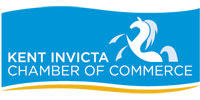A quarter of a million UK small businesses are set to fold unless they get more help, according to a new study.
A record number of small business owners are planning to close their firms over the coming twelve months, putting the UK on course to lose more than 250,000 businesses. That's just one of the stark findings of the latest quarterly Small Business Index (SBI) study published by the Federation of Small Businesses (FSB).
There are 5.9 million small firms across the UK, according to the Department for Business, Energy and Industrial Strategy (BEIS). Just under 5% of the 1,400 firms surveyed for the study say they expect to close this year. However, the figure does not reflect the threat of closure faced by those hoping to survive despite having frozen their operations, reduced headcounts or taken on significant debt.
The UK SBI confidence measure stands at -49.3, down 27 points year-on-year. The reading is the second-lowest in SBI history, second only to that recorded in March 2020. The vast majority of those surveyed (80%) do not expect their performance to improve over the next three months.
Key findings include:
- 23% of small firms have decreased the number of people they employ over the last quarter;
- 14% say they'll be forced to cut numbers over the next three months;
- 58% are forecasting a reduction in profitability for the coming quarter;
- 49% of exporters expect international sales to drop this quarter.
FSB national chairman Mike Cherry said: "The development of business support measures has not kept pace with intensifying restrictions. As a result, we risk losing hundreds of thousands of great, ultimately viable small businesses this year, at huge cost to local communities and individual livelihoods. A record number say they plan to close over the next 12 months, and they were saying that even before news of the latest lockdown came through.
"At the outset of the first national lockdown, the UK government was bold. The support mechanisms put in place weren't perfect, but they were an exceptionally good starting point. That's why it's so disappointing that it has met this second lockdown with a whimper.
"There are meaningful lifelines for retail, leisure and hospitality businesses, which are very welcome as far as they go. But this government needs to realise that the small business community is much bigger than these three sectors.
"Company directors, the newly self-employed, those in supply chains, and those without commercial premises are still being left out in the cold. We've published a five-point plan to address gaps in the support landscape, and we look forward to the Treasury embracing it. Action in March will be too late to stem closures."
He concluded: "This government can stem losses and protect the businesses of the future, but only if it acts now."
Written by Rachel Miller.
